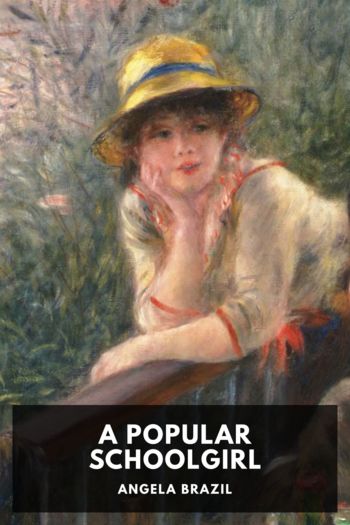Just Jackie by Edward Klein (web based ebook reader txt) 📗

- Author: Edward Klein
Book online «Just Jackie by Edward Klein (web based ebook reader txt) 📗». Author Edward Klein
“People in my own family told me I should vote,” Jackie explained. “I said, ‘I’m not going to vote.’ This is very emotional, but maybe you can understand it. You see, I’d never voted until I was married to Jack. I guess my first vote was probably for him for senator, wasn’t it? Then this vote would have been—he would have been alive for that vote. And I thought, ‘I’m not going to vote for any [other person], because this vote would have been his.’ … Bobby said I should vote, and I said, ‘I don’t care what you say, I’m not going to vote.’ It was just completely emotional.”
Lyndon Johnson, who viewed Jackie as the dowager queen in the Kennedy government-in-exile, did not see it that way. And his fears seemed justified when Jackie turned down his invitation to attend the dedication of the White House Rose Garden in her honor.
“I’d rather go to Dallas than ever return to Washington while Lyndon Johnson is in the White House,” she told friends in confidence.
“She is a queen in exile on Fifth Avenue, who waits for the restoration of the dynasty,” noted a British journalist.
“Suddenly there [is] a new, beautiful, internationally famous polestar to whirl about, a new peer-person to play status hide-and-seek with, a new ‘In’ personality to invite and hope to be invited by,” Liz Smith wrote about Jackie. “More than anyone else in New York, Jacqueline [typifies] the new society of the metropolitan Eastern Seaboard.”
Lee was driven crazy by the thought that she would have to spend the rest of her life in Jackie’s shadow. She was desperate to steal back some of the spotlight. A career in the theater sounded like just the ticket. After all, hadn’t Kitty Carlisle Hart said that she would be marvelous on the stage?
AUDITION
Early the next morning, Lee called Kitty.
“Where’s the script?” she asked. “I’m going to try out for a part.”
“It’ll be right over,” Kitty said.
Kitty then called Lee Guber, the producer of Marriage-Go-Round, who owned a string of summer playhouses.
“Lee Radziwill intends to come for a tryout,” she warned him.
To her surprise, Guber sounded interested. “I’m producing a play in Chicago,” he said, “and there’s a cameo role she might be able to do.”
A few days later, Lee Radziwill showed up at the Morosco Theater in a driving rain, clutching a damp copy of the script that Kitty had sent her. She got up on the stage and did a reading for Guber, who was sitting in the empty auditorium.
“I could sell out instantly if I announced your name,” Guber told her when she was through. “But I think it’s important that you don’t go out and fall on your face. Do some studying first, and acquire technique.”
Lee promised to start taking acting lessons. Truman Capote had told her that he could get Milton Goldman, who represented Laurence Olivier and John Gielgud, to be her agent. There was nothing like starting at the top.
That same day, Kitty received a call from Jackie.
“Lee told me that you arranged for her to get a part in a play,” Jackie said.
“Yes,” Kitty said brightly, anticipating a thank-you.
But Jackie was not amused. She thought Kitty was her friend, not Lee’s. Why was Kitty going out of her way to help Lee? Why would anyone help Lee become a professional actress? Lee did not have the slightest chance of making a go of it on the stage. She had no talent. She was trying to steal the spotlight, literally and figuratively, from Jackie. It was just one more example of that old stupid sibling rivalry rearing its ugly head.
“Kitty,” Jackie said, “what the hell are you doing!”
It was hard to tell which sister was the more jealous of the other.
CAROLINE’S MOUSE
Jackie had enrolled Caroline as a student at the Convent of the Sacred Heart on Ninety-first Street and Fifth Avenue. The school was housed in a large Italian Renaissance-style mansion that once served as the home of millionaire Otto Kahn. One day in the fall of 1965, Jackie came by, along with the other mothers, to pick up her daughter.
“This is Teresa Gorman from Great Britain,” the mother superior told Jackie, who was dressed in a cream-colored Chanel suit. “She’s a gift from God. We were all praying for a science teacher, and here she is.”
As a biology teacher, Teresa made good use of Central Park.
“Almost every day I took a group of pupils there,” she recalled. “When Caroline came, her two Secret Service agents came, too…. Jackie joined in as we turned over stones to find wood lice and earwigs. As our little group of schoolgirls laughed and skipped their way along, she would talk about her childhood in the country. She loved horses.”
The frogs, lizards, and white mice in biology class fascinated the children, and they begged to be allowed to take them home for the holidays. Shortly before Christmas vacation, Caroline turned up with a note from Jackie written on a piece of yellow-lined paper that had been torn from a notebook.
“Dear Mrs. Gorman,” it said, “Caroline has my permission to bring home a mouse.”
Teresa phoned Jackie and asked, “Are you sure you really want this mouse? It could escape.”
“Caroline’s in love with the idea,” Jackie said. “She absolutely insists.”
A few days later, Caroline, Teresa, Bobby Kennedy, and two Secret Service agents all went shopping for a mouse cage at Bloomingdale’s. Bobby, who had just been elected senator in a landslide, moved down the crowded aisle with both arms extended, allowing people to stretch out





Comments (0)